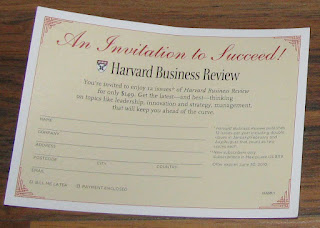Once upon a time, advertising meant the brand is successful, what the consumers translated as
“the product is good”. That is in a far away reality, which we now doubt ever existed.
Later on, people looked for confirmation from a second source. While they often relied on a friend’s advice, they also trusted a credited source: what they’d label an expert.
Trial and error taught them that experts are not always honest; they often have their own reasons for praising.
Now, with the increase in
interactive marketing a new way of doing things has emerged; a
"Do unto others as you would have them do unto you” type of marketing. If you have a blog or are member in a community, you’ve probably already witnessed this: “
you link to me, I link to you” or “
I commented on your text, come check out mine”. However, this activity is not limited to the digital world, and this is what most of us ignore. It is everywhere.
I was recently reading a book called
the Black Swan. It’s author,
Nassim Nicholas Taleb pointed out how the academic world has become a “
you quote me, I quote you” type of place.
If I say I am great, no one will believe me. If you say I am great and I say you are great; then the world is fooled to think we both are indeed – that is – if the same person does not stumble upon both sentences at once. It is even the basis of social interaction.
I recently realized how little value we have for real
“merit”. We trust other people’s judgments blindfolded. If I was to buy a book, I would not pay attention to its content, as much as who commented on the back cover or which book got better reviews from the big sources.
Consequently, a business book published in India, for instance, has less chances for success than one published in the US; “
country of origin effect”? Not quite so. If an Indian author would publish his business book in the US, he’s as likely to be acclaimed, as is an American author. The trick would be getting reviews from the big CEOs and the renowned business magazines:
Businessweek,
Financial Times and the likes.
What some people might attribute to luck, is logic but in a non-mathematical sense; and not everyone grasps this. Some people are born in the right place; others just understand how the customer functions, the latter are the marketers... and both find the way to success.




